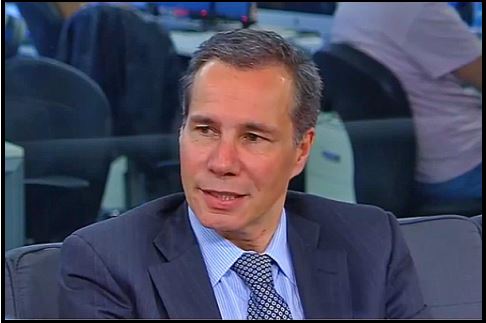Argentine state prosecutor Alberto Nisman was shot dead just hours before he was going to testify to the Argentinian Congress on Monday, Jan. 19, that his country’s president was directly involved in cover-ups to obscure Iran’s involvement in the Buenos Aires bombing of the Israeli Embassy and Jewish Community Center.
On July 18, 1994, the Argentine Israelite Mutual Association (AMIA) building was bombed, killing 85 people and injuring hundreds.
Nisman was the special prosecutor on the case. In 2006 he formally accused the government of Iran of directing the bombing and the Hezbollah terrorist organization of carrying it out.
In May, 2013, Nisman released a report accusing Iran of establishing terrorist networks in Latin America dating back decades. That report provided evidence, he claimed, of an “intelligence and terrorist network” in Argentina, Brazil, Paraguay, Uruguay, Chile, Colombia, Guyana, Trinidad, Tobago and Suriname.
Nisman further claimed that the evidence in his report proved “beyond a reasonable doubt” that former Iranian cultural attaché in Argentina, Mohsen Rabbani, was responsible for the 1994 AMIA bombing, and that he was the “coordinator of the Iranian infiltration of South America.”
Argentine President Cristina Fernandez has close ties with other Latin American leaders who are friends of Iran, but Nisman’s claim last week that she was directly involved in the cover-up was a bombshell.
There were many irregularities over the years regarding the court case over the 1994 bombing. All the local suspects were found “not guilty,” and the federal judge in charge of the case was later impeached and removed from his position for “serious” mishandling of the case.
Last week Nisman said during a radio interview that he had proof of the Argentine president’s involvement in the cover-up. The assistance was provided, Nisman, said, because Argentina wanted to “establish full diplomatic relations, and, more importantly, a commercial trade due to the energy crisis that Argentina faced,” the MercoPress, a South American news source, reported.
Nisman also explained that Argentina’s former foreign minister, Rafael Bielsa, had received a proposal from the Iranians in which they offered “a very beneficial economic offer, in exchange we have to state that the prosecutor’s complaint was all a mistake and void it.”
During the interview Nisman also clearly stated that the former president, Nestor Kirchner, was adamantly against such a deal. The current president, widow of the former president, however, according to Nisman, was “the one who decided to give impunity to Iran, to exculpate” the suspects.
Nisman’s decision to speak out publicly about his evidence against the president appeared to be motivated by the decision of the judge overseeing the case who refused to end the court’s January recess in order to hear the accusations filed by Nisman.
A former judge on the case said the evidence to which Nisman had pointed was “flawed” because Nisman had not involved him in the wiretap decisions. Nisman’s response was that he did not undertake any new wiretapping, “I simply worked with evidence collected along the way,” the MercoPress reported.
Nisman was found dead of gunshot wounds in his home this morning.
This article was originally published by Jewish Press and may be found here.
